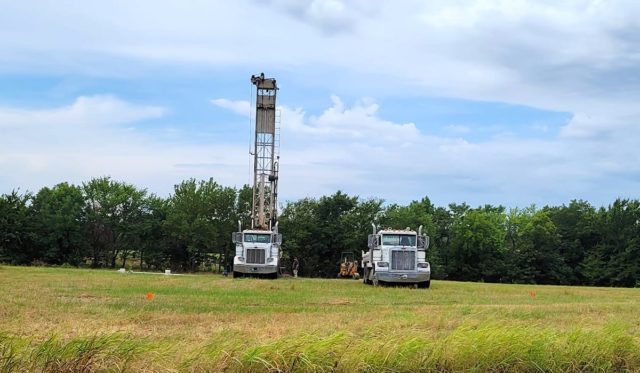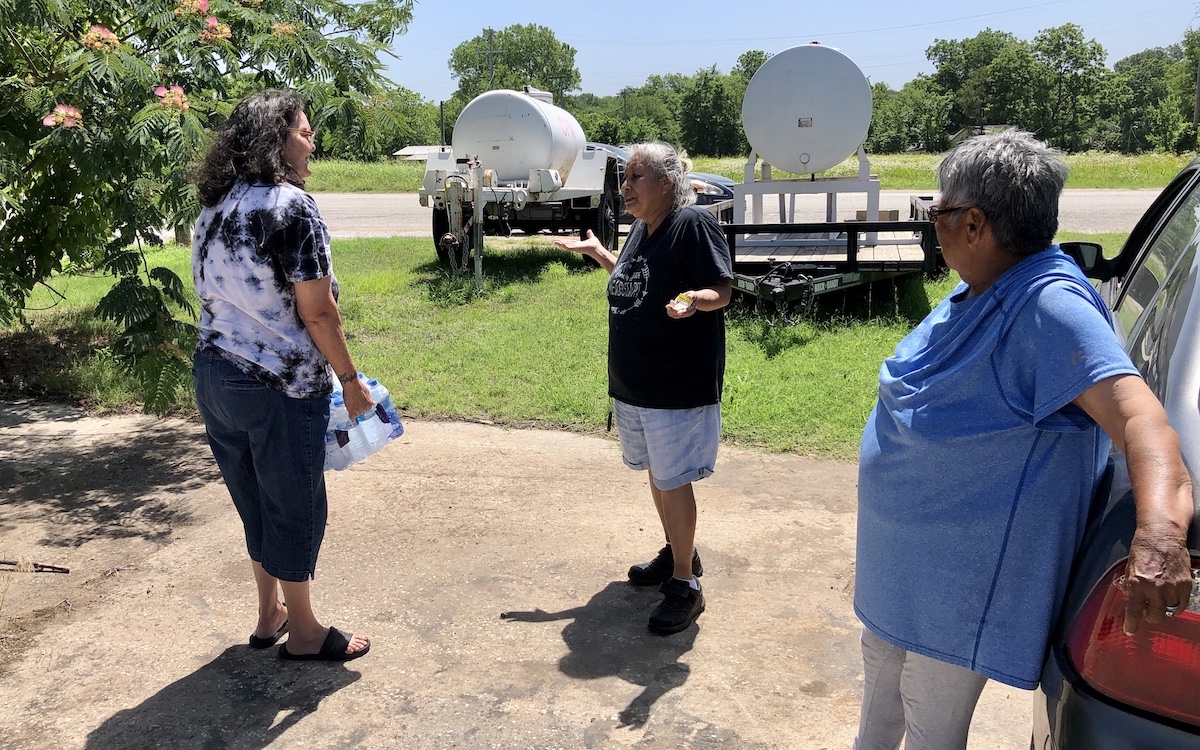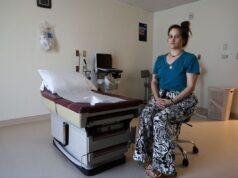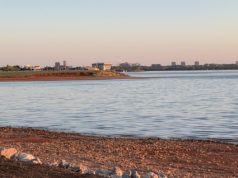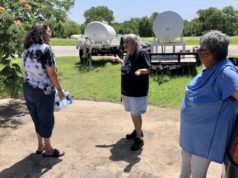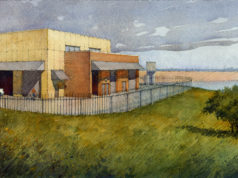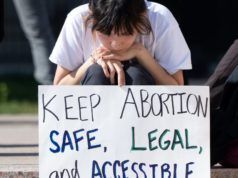Thanks to the combined efforts of federal, tribal, state and local governments, an emergency well has been drilled in Sasakwa, a small town in Seminole County where some residents have lacked water throughout the summer months.
Sasakwa Mayor Brenda Myrick believes once samples pass the water quality testing process and the well comes online, it should be able to sustain the town’s future water needs.
The well — coined the LeRay well — should complete water quality testing within the next week, Myrick said.
RELATED
‘We need water’: Sasakwa residents dry for months, governments unsure of solution by Joe Tomlinson
Town officials had turned Sasakwa’s water system on and off every 12 hours to maintain supply throughout the summer. Myrick said workers recently fixed waterline breaks that had caused the pressure to decrease.
“We’ve done really good,” Myrick said. “The pressure has gone up, and I think it’s because the town has really realized that they need to do what needs to be done to keep this pressure up and not waste water.”
Myrick said many Sasakwa residents did not realize the enormity of the situation early on. Once they did, she said they took personal action to keep the water system running.
“They didn’t fill up pools, they didn’t waste water outside and all this and that,” Myrick said. “They realized that not having water was a big thing — as bad as electric.”
Seminole Nation funds Sasakwa well via IHS
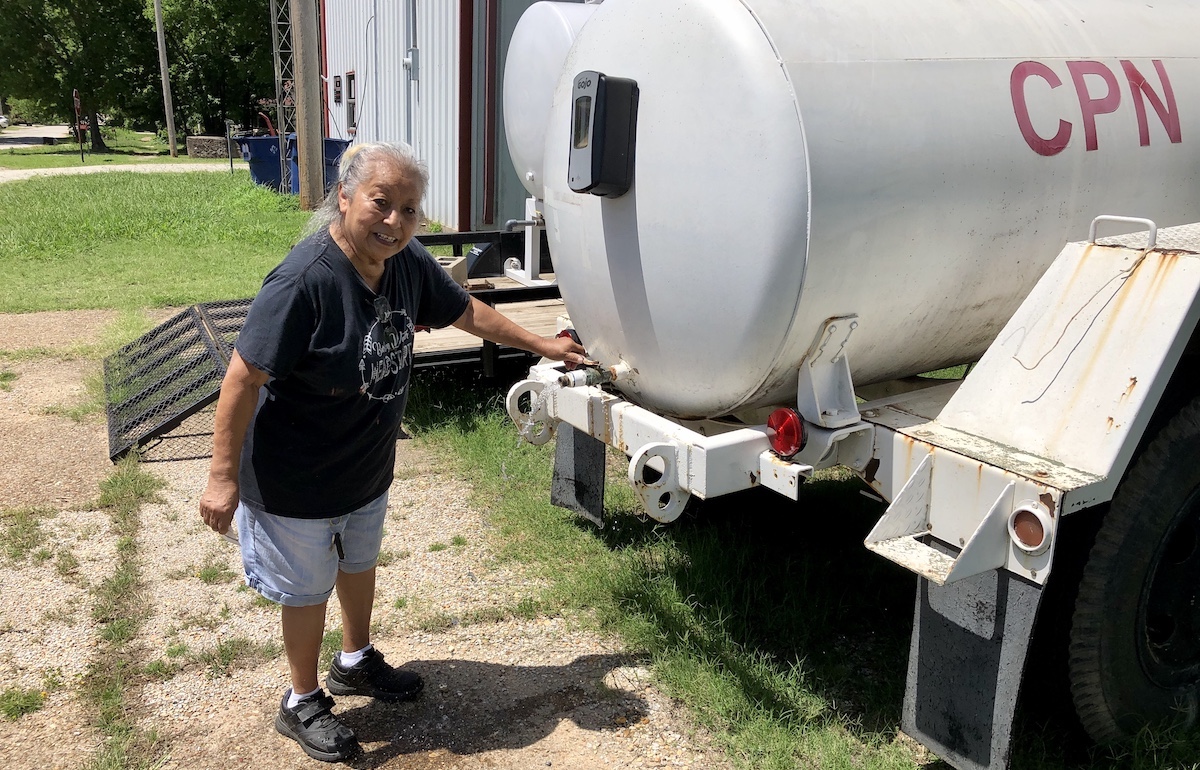
Sasakwa, which has seen its official population decline from 150 to 80 between the 2010 census and the 2020 census, struck an agreement with the Oklahoma Department of Environmental Quality to expedite drilling the new water well.
“This was an emergency situation, so DEQ agreed that the system could drill one emergency well and then provide as-built plans and specifications, obtaining a permit after the fact,” said Erin Hatfield, DEQ’s director of office of communications & education, in an email to NonDoc.
With the town struggling to find funding for the well project and system upgrades, the Seminole Nation provided more than $60,000 through the tribe’s environmental health services program, said Brian Thomas Palmer, the assistant chief of the Seminole Nation of Oklahoma. Many residents of Sasakwa are enrolled Seminole citizens, and the EHS program is funded via the federal Indian Health Service.
“Our director submitted basically an emergency requisition through IHS that was funded,” Palmer said. “We were able to justify that we have X amount of tribal homes (in that area) — the school, the community — and were able to get it funded that way.”
Palmer, who previously served on the Sasakwa Water Board for 10 years until he moved in 2014, said the increased demand for water throughout the extraordinarily hot summer caused problems for the town’s water system.
“There’s a lot of things that go into the water usage. With school being out, with swimming pools, water sprinklers, gardens, things like that — it adds to that demand,” Palmer said. “It just simply, at this point, wasn’t able to keep up with the demand.”
Palmer said the LeRay well — which was drilled about 100 feet from an ineffective well — is able to produce about 22 gallons per minute. Palmer said he believes the other well produced eight to 14 gallons per minute.
“The older well that’s now being abandoned, it just wasn’t able to sustain eight to 14 gallons (a minute), 24 hours a day,” Palmer said. “This one, they can pretty much run it 24/7, and it’s still going to produce 22 gallons per minute without having any issues with it.”
Other Sasakwa water system improvements could also be in the works. Palmer said the Seminole Nation’s environmental health services program has carryover funds from previous years which could be used to rehab another ineffective well or drill a new well entirely.
“If that actually happens, they’ll have two new wells, which should eliminate that issue if we have another summer like we did this one,” Palmer said.
Sasakwa also received a REAP grant for the well, said Myrick, who believes Sasakwa’s actual population is closer to 300. However, she was not sure which organization gave the grant nor the exact amount of funding approved.
Robby Short, communications and marketing coordinator at the Oklahoma Water Resources Board, said OWRB has not received a REAP grant application from Sasakwa officials.








